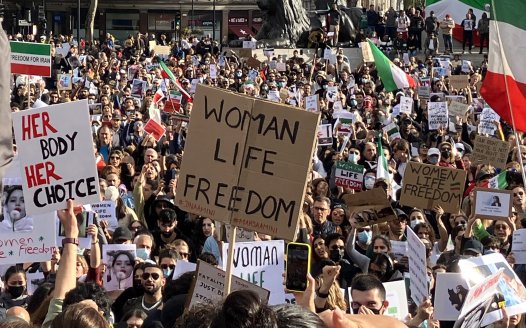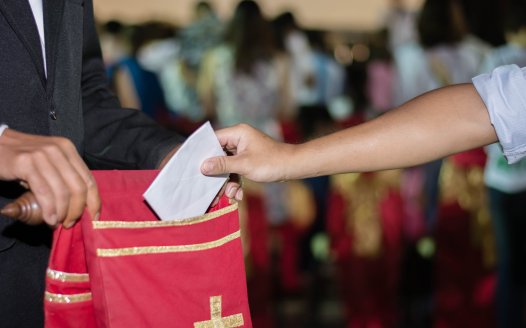Campaigners raise concern over hijab in primary schools
Posted: Thu, 14th Sep 2017
Feminist campaigners are calling for a "robust" response after it emerged that many state primary schools are incorporating the hijab into their uniform policies.
In a letter published in the Sunday Times last weekend (text below), they urged the state "to robustly defend hard-won freedoms and progressive values". They will soon meet Amanda Spielman, the chief inspector of schools in England, to discuss the issue.
The letter was co-ordinated by Amina Lone, of the Social Action and Research Foundation. Its other signatories included Gina Khan, of One Law for All, and the National Secular Society's campaigns director, Stephen Evans.
It came in response to a Sunday Times survey of 800 primary schools from 11 parts of England, which found that one in five had listed the hijab within their uniform policy. Girls as young as five were wearing the headscarf, which is associated with modesty codes and curbing sexuality.
The signatories called this "an affront to the historical fight for gender equality in our secular democracy" and said it was "creating a two-tiered form of non-equality" for young girls from Muslim backgrounds.
"Women's rights are the first to fall when religious extremists gain power," they said. "The image of brave Yazidi women burning their burqas should be a warning to us all. This is about power, control, status and regressive honour codes."
They added that Britain "has an abysmal record of protecting young Muslim girls, who suffer under the pretext of protecting religious freedoms". They cited the avoidance of "so-called sensitive issues such as female genital mutilation, child sexual exploitation and forced marriages".
They said the government was contradicting itself by "advocating more inclusion and cohesion" while "turning a blind eye when our schools are being politicised". And they called on readers to write to Justine Greening, the education secretary, to demand action.
Lone is among those who say girls from Muslim backgrounds are being pressurised to wear the hijab at younger ages. Last month she criticised a Transport for London safety campaign which showed a four-year-old in a headscarf.
"A minority of very vocal hardliners within Muslim communities are pushing a narrow version of what constitutes an 'acceptable' Muslim woman," she wrote in the Guardian. "One who is veiled, compliant and modest in all her actions." She added that most Muslims accept that young children should not wear the hijab.
Earlier this month an Ofsted source said the inspectorate was "looking at whether there is evidence that schools are facing external pressure to adapt their policies".
And in one high-profile case last week, it was reported that the Muslim parents of an 11-year-old girl had withdrawn her from a Church of England school which refused to allow children under 16 to wear the headscarf. The parents said she had been "exposed to a gross injustice". The school said it was "committed to the inclusion of students from all backgrounds" and that "a uniform that does not distinguish between pupils' backgrounds is a positive way of achieving this aim".
Some religious leaders have defended the wearing of the hijab. The Bishop of Bradford, Tony Howarth, said allowance should be made in Church of England schools because young girls want to "look like their mums".
Text of letter
We are soon to meet Amanda Spielman, the chief inspector of schools, to discuss the unacceptable rise of the hijab in state-funded primary schools.
Muslim girls as young as five are increasingly veiled and schools are sanctioning this by including it as part of school uniform policies.
This is an affront to the historical fight for gender equality in our secular democracy and is creating a two-tiered form of non-equality for young Muslim girls. At a time of rising religious extremism (from all faiths) around the world, this is not a time for the state to diminish our collective rights but to robustly defend hard-won freedoms and progressive values.
To add insult to injury, Islam does not require children to cover their heads, so why are our schools allowing this in the name of "religious tolerance"?
Islam is not monolithic. These beliefs are subject to interpretation and highly politicised. These issues have to be understood in a global Islamic context. The covering of women is a key battleground and part of a push for systematic regressive practices of gender inequality. As women, we would legally have to cover up in Iran, Saudi Arabia and the Aceh Province, in Indonesia. We would be pressured to cover up in most Muslim countries just because we are female.
Women's rights are the first to fall when religious extremists gain power. The image of brave Yazidi women burning their burqas should be a warning to us all. This is about power, control, status and regressive honour codes.
Veiling is highly controversial because it is about modesty, curbing sexuality and sexual curiosity. But these gender codes are not set in stone. Countries such as India and Tunisia are fighting back against male-dominated orthodoxies and protecting women's rights against cultural and ultra-conservative religious practices.
Our country has an abysmal record on protecting young Muslim girls who suffer under the pretext of protecting religious freedoms rather than gender equality. We duck from challenging so-called sensitive issues such as female genital mutilation, child sexual exploitation and forced marriages. We are creating conditions that would be seen as abhorrent if transferred to other equality areas.
By turning a blind eye when our schools are being politicised, government contradicts itself when advocating for more inclusion and cohesion.
Fragmenting the education system is one thing. Turning our backs on equal rights for Muslim females is unacceptable. Muslim women lead this campaign and we welcome support from fellow citizens who want to protect our secular progressive democracy. We urge you to write to the minister of education, Justine Greening, and demand action.
Our state-funded schools should be a place where children can be free to learn, dream, create and question without limiting their choices.
Give women the choice; give children the freedom.
Amina Lone, Gina Khan, Zehra Zaidi, Aisha Ali Khan, Henna Rai, Iram Ramzan, Lejla Kuric, Sara Khan, Yasmin Rehman, Afsana Lachaux, Tehmina Kazi, Amber Lone, Stephen Evans







